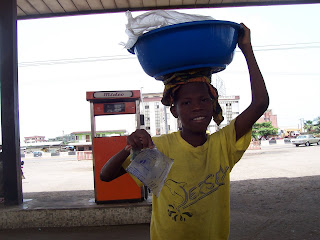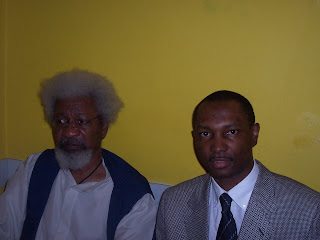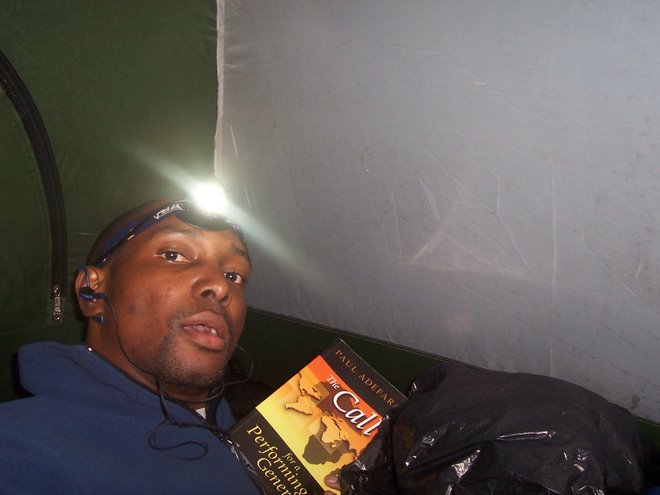
Tribal stereotypes in Nigeria Comedy; the Calabar example. Part One
The comedy industry in Nigeria is experiencing steady growth. Tribal stereotyping features prominently in Nigerian comedy in instances ranging from stand up routines, to drama or film.
Comedians play to the gallery, so one might suggest that there is a demand for these sorts of jokes. The question however is why? Not an easy question to answer but I will try.
Introduction
Gelotology is the study of laughter. Many researchers have undertaken to study laughter in formal situations and produced interesting findings. To date, I am unaware of any such studies being conducted in Nigeria thus I have relied heavily on anecdotal evidence in the writing of this article, and thus bias and inaccuracies might occur.
Eliciting laughter is the ultimate a goal in the performance of a comedy routine.
We laugh when we find a situation funny. In many instances a situation is perceived as funny when the end of a series of events results in a different outcome to what we had anticipated at the beginning. Hence the first job of the stand up comedian is usually to make his audience anticipate something. That is only possible by sharing a situation that is familiar to the audience. And since most comedy routines are basically stories about people, the easiest way to manipulate the audiences’ collective expectation is to use stereotypes.
In the Nigeria, all the major ethnic groups have their stereotypical characteristics, which is usually based on erroneous premises. The accent is the easiest one to do. An impression of a Hausa man speaking tends to get the audience laughing in anticipation of a stereotypical story such as security guard or Suya seller with low educational attainment involved in a common scenario for that audience.
Other examples of tribal stereotypes are the Igbos love for money, Edo girls in Italy involved in prostitution, and Yorubas who love to lavish huge monetary gifts while dancing at parties. The major tribes feature prominently in comedy routines, as these characters with their regional accents are easily recognisable by audiences.
Apart from absurd or incongruous ends to stories, there is the feeling of superiority, which good comedians evoke in their audiences when talking about the stupidity or undesirable qualities of other tribal groups or individuals.
That may explain the ready success comedians have enjoyed from telling jokes about poor or ‘wowo’ (ulgy) people. Everybody tends to laugh at these jokes; ironic in a country where poverty, real or relative, is rife.
Any that may explain why comedy shows staged in a town will tend to have comedians telling jokes at the expense of other towns or the minority groups within that town- a sort of bullying.
Comedy affords an opportunity to laugh at events and problems that are not funny in any way. The pent up frustrations are given a release through laughter, and this helps to reduce tension.
Of all the tribal stereotypes on offer in Nigerian comedy, the most politically incorrect and vicious lampooning seems to be reserved for the Calabar people. Why?
Calabar People
This widely used term in Nigeria - Calabar people is somewhat inaccurate. Calabar is the Capital of Cross River State, which was created in February 1976 out of the former South Eastern State (created May 27, 1967 out of the former Eastern region).
The three major language groups in Cross River State are; Efik, Bekwara and Ejagham.
Akwa Ibom State was created in September 23, 1987 and was craved out of the Old Cross River State. The major ethnic groups in Akwa Ibom are Ibibio, Anang and Oron.
To the average Nigerian the two states of Akwa Ibom and Cross River are simply called Calabar, partly due to ignorance and also due to the fact that till date many Nigerians have not gotten a hang of the current map of Nigeria!
The various languages in these two states are also loosely called Calabar or Efik.
History, Myths and Icons.
Like I have alluded to before, comedy requires the audience to ‘get’ the story as it starts so that the ‘punch line’, usually an unexpected outcome, achieves maximum impact.
The people of Akwa Ibom and Cross River have a distinctive accent known to most audiences in Nigeria. This lends itself to comedy very readily.
I also suspect that their rich history and culture which features strong iconoclastic characters makes them exotic or perhaps enigmatic, thus making stories about them appear much more interesting.
These people of the South Eastern part of Nigeria are not known for rioting, so perhaps the Nigerian comedians and script-writers feel confident that there will be no back lashes from the ‘polite and dignfied’ Calabar when they are mercilessly lampooned in the name of entertainment.
The most Dramatic things in Nigeria as a whole seem to happen to the ‘Calabar people’ and here I begin my list.
Mary Slessor (1848-1915), the Queen of Calabar, was a Scottish missionary who lived and worked with the people of Okoyong for many years. She learnt the Efik language and died in those parts. Her grave stands there till date. She is credited with stopping the killing of twins in these parts and stopping the trial of witches by the Calabar Ordeal Bean.
A Dr W F Daniel first reported the use of this bean; Physiostigma Venenosum, a woody vine and known to all students of Physiology world wide, in 1846.
People suspected of Witchcraft were forced to eat some of the beans, which contained Physiostigmine. There were three out comes possible.
Firstly, if the beans are vomited and the patient survives then they were acquitted. Secondly, if they had abdominal symptoms and survived they were sold into slavery. Finally, if they died, they were deemed guilty.
Missionaries at the time learnt to swallow the beans when captured by the ‘natives’ and put through the ordeal. They then regurgitated the beans up and survived. They had learnt that the deadly Physiostigmine was only released after chewing the bean (Na Beans!).
John Newton (1725 to 1807), the author of the world famous hymn Amazing Grace was said to have been inspired to write this hymn after hearing traditional songs in Old Calabar when he was a Captain on a Slave ship. This story has been the subject of numerous writings, documentaries and films, including Fred Amata’s Amazing Grace released in 2006. These three stories have given Calabar a place in world history and folklore.
Throughout Nigeria’s recent history, a subject of discussion among men for many years is the traditional fattening rooms of Calabar have been. These are rooms where young girls are feed to obese proportions for months and also taught how to satisfy a man ie sexually, through coking, home management skills, respect for in laws etc. This has given rise to the myth that Calabar girls know how to take care of a man. And since comedy is a male dominated profession, this image of beautiful girls with insatiable sexual appetites, the stuff male fantasy, gains expression during stand up routines.
Another myth is that Dog meat is eaten regularly in Calabar and its environs and this meat somehow confers a sexual stamina on the women who eat it.
Then there is the Brotherhood of the Cross and Star whose leader is Olumba Olumba Obu, who claims to be God. He is a well-known ‘Calaber man’.
In more recent times the dispute over the oil-rich Bakassi peninsular between Nigeria and Cameroun has brought the area into the limelight. The International Court of Justice in 2002 awarded the peninsular to the Cameroun to the consternation of many Nigerians. The word Bakkassi was used as a jocular slang for female buttocks and also serves as a name for the vigilante group, Bakkassi boys.
This South Eastern area is on its way to becoming a major tourist attraction with the opening of Tinapa; a business and leisure development. The Obudu cattle ranch is also a much talked about destination boasting of a cool climate due to its high altitude (1,542m) and affording visitors to embark on horse riding, hiking and the like.
In London, there is a well known restaurant called Mama Calabar.; a place where nutritional needs are meet.




.jpg)







.jpg)



